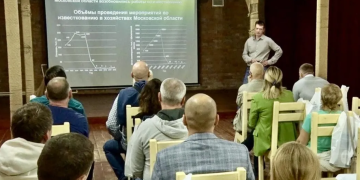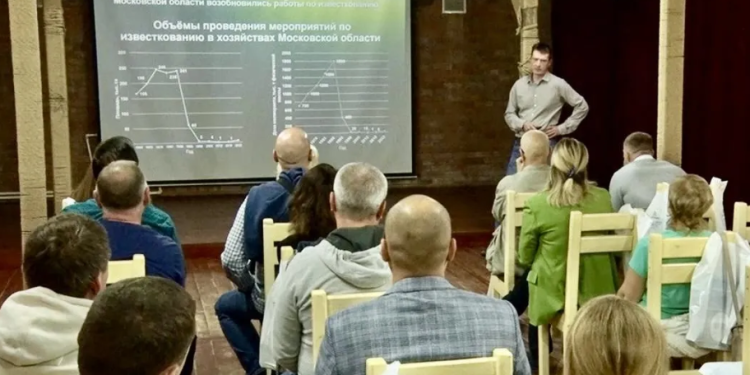#Agriculture #SoilAmelioration #CropYields #AgriculturalInnovations #MoscowOblast #SustainableFarming #Phosphogypsum #AgriculturalGrowth #KlinRegion #FarmingTechnologies
Klin, a region in the Moscow Oblast, has been making rapid strides in agricultural development in recent years. With 39 agricultural enterprises actively contributing to its growth, the region has become a hotspot for innovative farming practices. During a recent seminar held in the village of Kuznetsovo, local farmers were introduced to cutting-edge technologies that promise to revolutionize agriculture in Klin.
Improving Soil Quality with Russian Expertise
One of the key takeaways from the seminar was the critical need for soil ameliorants in the Moscow Oblast. Russian fertilizer manufacturers have stepped up to the plate with a unique solution – phosphogypsum. Grounded in Russian agricultural traditions, agronomists have developed this novel product to address the specific soil needs of the region.
Agricultural company “Bunyatino” has been at the forefront of implementing these groundbreaking soil mineralization developments for the past three years. Their prudent management decisions have resulted in a remarkable 200% increase in crop yields and enhanced taste profiles of their produce. Notably, they have successfully reduced the water content of the region’s favorite crop, potatoes, while simultaneously preventing soil depletion in their agricultural lands.
Looking Ahead
As the seminar drew to a close, it was evident that Klin has embarked on a journey of rapid agricultural advancement. With 39 agricultural enterprises operating, including major agro-holdings like “Bunyatino” and “Doka-Genetic Technologies,” the region is poised for continued growth and innovation.
Sergey Shchukin, the CEO of “Agrofirma Bunyatino,” emphasized the importance of sustained efforts in soil improvement, stating, “We sought a soil ameliorant that would preserve the mechanical structure of the soil. We faced challenges that demanded additional investments, but we found the resources to address them. It’s crucial for soil fertility enhancement initiatives to be part of a five-year program, not just a one-time effort.”
The agricultural sector in Klin is on a remarkable trajectory, fueled by domestic innovations and a commitment to sustainable growth. The integration of cutting-edge technologies and indigenous expertise is poised to reshape farming practices in the region, ensuring a more bountiful and sustainable future for Klin’s agricultural community.































